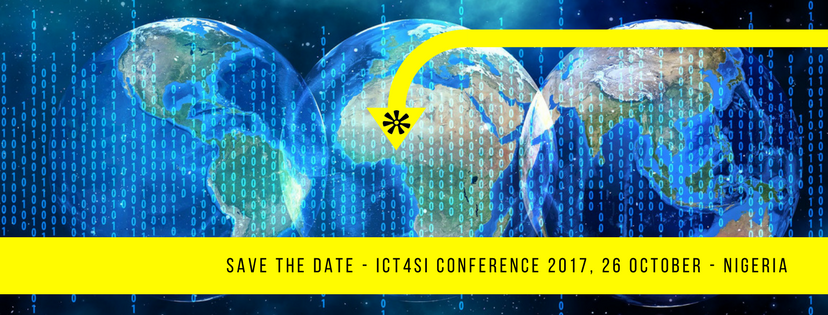Blog
Kiiya JK
Director / ICT4SI East Africa Network Lead, Sema Tanzania

Prior to this year’s ICT 4 Social Innovation Conference #ICT4SI17, our main funder SPIDER hosted a two day training for Network Leads across Africa, Asia and Latin America (#PENTHIO ) to enable Network leads to improve on how they manage networks that focus on Sustainable Development. The workshop took place in Abuja, Nigeria on 23rd-24th November 2017. This was closely followed by the ICT4SI Conference which also included members day (meeting of ICT4 Social Innovation members to discuss network agenda and plan for 2018) from 25th-26th November 2017. Our East Africa Lead and member from SemaTanzania wrote an account of his experience below:
Guest post by KIIYA JK – ICT4SI Network Lead for East Africa
My experience at Africa’s largest economy is memorable. First things first and by extension, I would like to thank SPIDER, iHub, Afrilabs and MSH Idea Lab for logistics (making sure I arrived and left Nigeria in one piece). That aside, there was this #PENTHIO word which I was introduced to, it originates from Senegalese Wolof community, they use #PENTHIO to mean sharing!
Yes, plenty to share there was at this year’s #ICT4SI17. Knowledge was shared on how to make networks more effective and efficient. That we should focus on needs rather than problems. An example was given of a person who gets tired too early at a workstation. A quick fix to his ‘tiredness problem’ could include having loads of cups of coffee to stay active all day through! However, a needs-based approach solution may be more rest at night (sleep time).
Then came the leadership equation that was presented by Kerstin Borglin, Spider’s director. She shared her story which goes back over 20 years working for Ericsson in management positions both in Sweden and abroad, working with projects and companies in Sub Saharan Africa, Eastern Europe, The Middle East and North America. Spider stands for Swedish Program for ICT in Developing Regions.
Kerstin, SPIDER’s director, says leadership needs: vision; clarity; agility (i.e. listen to those you should not be listening to, ones you dislike – she calls this maturity stage of leadership – the ability to accommodate strong critics); courage; provide management structure; perseverance (most of time 🙂 ); communication; integrity; trust (trust that your team can do it without relentless control, use that time to attend to leadership matters); and accountability (whenever something goes wrong at the organization, it is your fault!)
Public-private-academia-partnership, yes that was introduced by Associate Prof. Caroline Wamala Larsson and Dr Edgar Asiimwe from SPIDER’s research arm. They stressed that monitoring must always begin at any project’s onset to yield tangible results. Epistemological question must be responded to before an intervention is sought. Simply put, ‘how do you know what you know?’ Yet most organisations in our part of the world do very little to embrace the use of a pool of academia available in our institutions. If well utilised, these researchers may not only be a great resources in work we do, but also may help boost organization research capacity, for good.
‘If your ICT innovation doesn’t meet business process needs,
you are wasting time and resources.’
Olasupo Oyedepo from African Alliance of Digital Health Networks
We learnt that ICT tools are set up to meet business process needs. An instance that fits well in this scenario was given by the CEO of M-Power who said most M-Health initiatives die because they treat Community Health Workers as data collectors, they are not designed to mimic current workflow and they are not linked to overall health information system / infrastructure.
Lastly, we concluded that for an ICT tool to work for people, people need to be at the centre of its design. That a Nigerian politician responding to critics of Buhari’s time attending treatments in London once said, ‘You cannot shave a man’s head in his absence.’ Similarly Mwalimu Nyerere once said, ‘People know what their needs are, ask them.’ Design with the user, remember to make your ICT interoperable!
‘Doing is the best kind of thinking’ – Tom Chi, Google X Co-Founder. A friend in Nigeria challenged us while responding to the question why Africans do not share knowledge compared to other parts of the world. You think they don’t? Just Google how to cook ugali. Share your responses! The Nigerian friend said we should keep posting. One post at a time – that way Africa will change for better.
*Photocredit: (c) SPIDER 2017
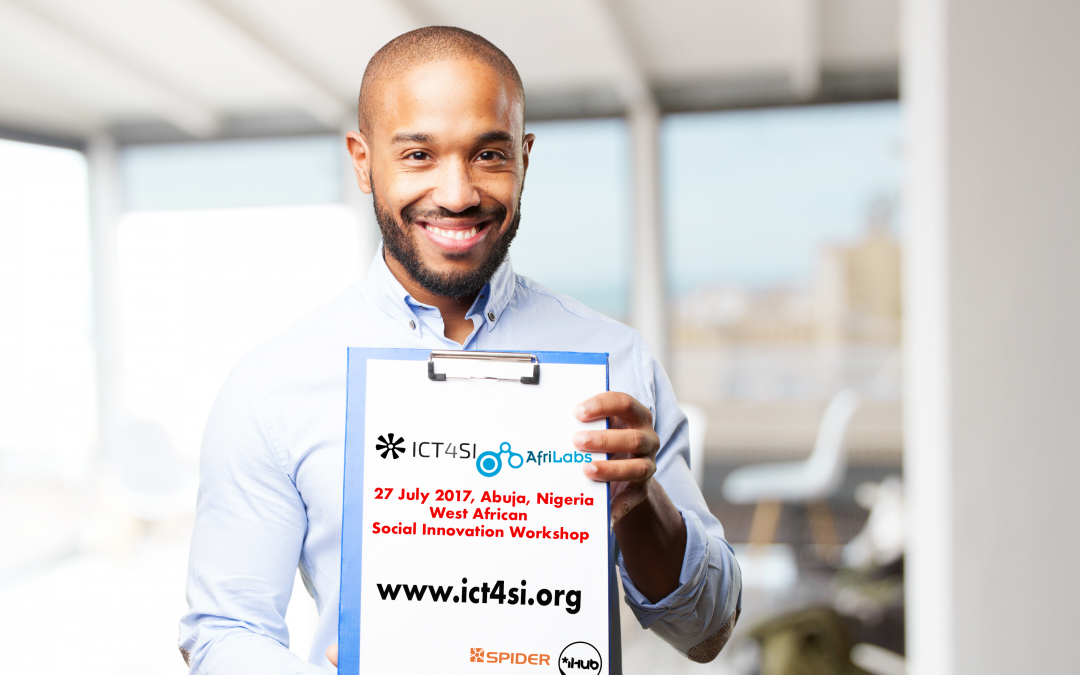
Uncategorized
AfriLabs and ICT4SI have partnered to host our first West African ICT 4 Social Innovation workshop in Abuja, Nigeria, on July 27, 2017.
The workshop will take the theme: “Leave no one behind – a multi-sector action for African ICT solutions to bridge gaps through social innovation”.
The event aims to create a cross-sector platform for collaboration in education, health and rights-focused innovation; and will bring together various stakeholders including civil society organisations (CSOs), private sector agents, researchers, government officials and technology experts.
The workshop is organised in conjunction with local partner Management Sciences for Health (MSH), who said there is a need to highlight the urgent role of ICT in social innovation.
“This event is a milestone in bringing African tech experts to make reality of problem-solving so that we can collectively be a region known for secure, innovative and inclusive ICT infrastructure which enables Nigeria and our neighbours to have better education, health and transparency,” said Benjamin Akinmoyeje of MSH.
The workshop will see international tech experts give presentations feeding into discussions on the challenges and opportunities in ICT for development (ICT4D), the practical applications and successes, and the next steps in network sustainability. Email ict4si@spidercenter.org for more information or send us a message on our social media channels
www.facebook.com/ict4si
twitter.com/AfricanICT4SI @AfricanICT4SI
www.afrilabs.com
MSH IDEALab Nigeria www.facebook.com/mshnigeriaidealab/
The ICT4SI network event is supported by iHub Kenya and funded by SPIDER
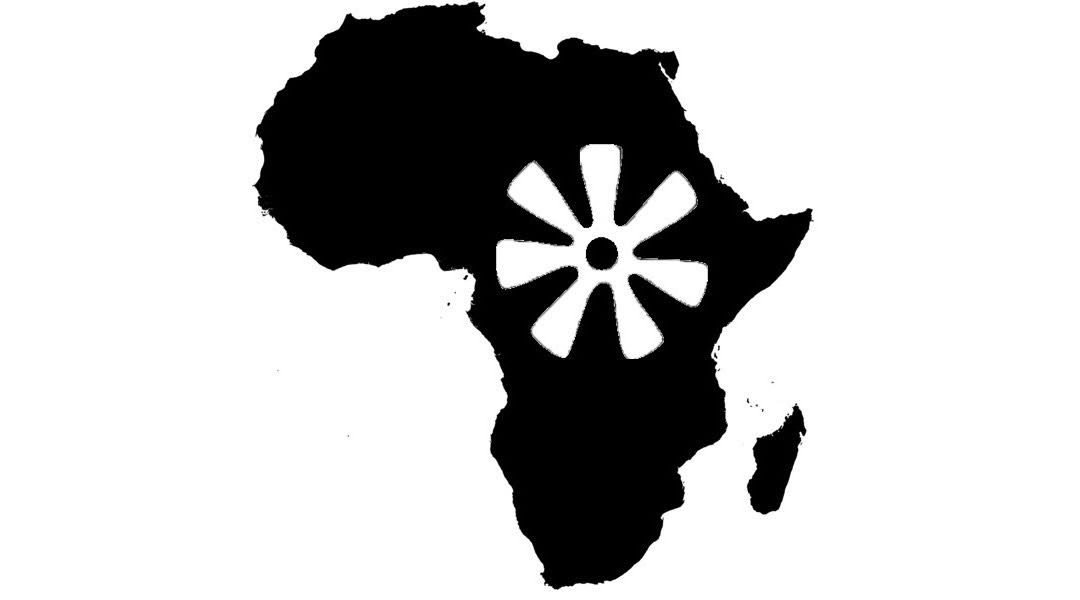
Media
Press Release
AfriLabs and ICT 4 Social Innovation Network enter a partnership for African technology to lead the continent’s progress
Abuja/Nairobi/Stockholm, June, 2017: AfriLabs*, the largest network of African technology labs, joins forces with the pan-African ICT 4 Social Innovation Network*, founded by SPIDER* and iHub* to unite key sectors for digitally advancing development in health, education and rights across the continent. The Networks share a common goal of promoting African technology solutions to bridge divides in access to quality education, health and rights and to bring social innovation to scale for greater good under SDGs and AU’s Agenda 2063.
“Social Innovation is borne out of creatively approaching the hindrances which stall development, whether in making sure that children access quality education irrespective of where they live, online security for rights advocates, or professional development for health workers. The ICT 4 Social Innovation Network already shares some of its members with AfriLabs, we are delighted to extend this partnership and confident that our alignment will bring new innovative solutions to the table“, Anne Salim, Network Manager for ICT 4 Social Innovation /iHub.
ICT 4 Social Innovation Network has a membership of over 35 organisations/companies working in private, public, academic, technical and civil society sectors, with a key focus on sustainable development goals through information and communication technologies (ICTs). The network showcases innovation and provides a platform for collaboration and organisational development.
AfriLabs Head of Secretariat, Anna Ekeledo explains the stimulus for the partnership “African tech hubs are at the forefront of technical solutions tailored for the African continent, by joining forces with the ICT4SI Network, we make sure that synergies of knowledge, opportunities and resources are strategically joined for greater impact and sustainability”.
The partnership is timely formed as the ICT4SI Network will host its 3rd Annual Conference in Abuja, Nigeria, the city home to AfriLabs headquarters on 26th October 2017. Visit www.ict4si.org for more information.
For more information email ict4si@spidercenter.org or contact the organisations through the telephone numbers below:
SPIDER – www.spidercenter.org
Tel: +46(0)8 16 16 07
*iHub – www.ihub.co.ke
Tel: +254724145277
*AfriLabs – www.afrilabs.com
Tel: +2348149612015
Download full press release here
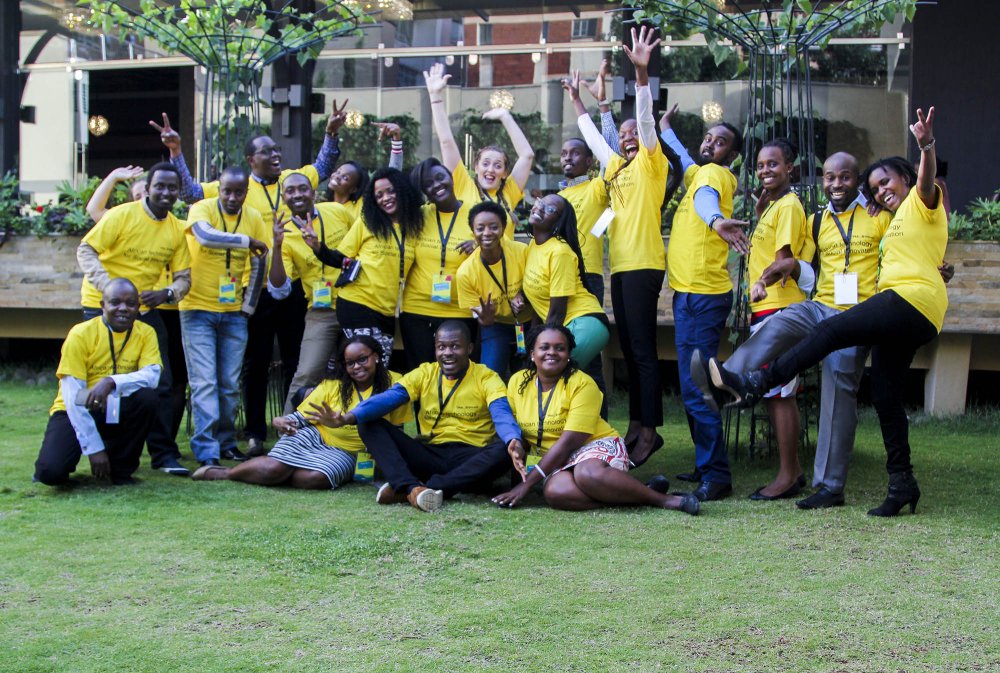
Blog
By Anne and Edna
The ICT 4 Social Innovation Conference and Network (ICT4SI) was established in 2015 by iHub Kenya and SPIDER. We held the first meeting in Kigali, Rwanda. The idea to set up a network that connected organisations working in the education and health sectors across Africa was explored by participating organisations. Emerging questions from the first meeting were issues around:
- What is the purpose of the regional network within a development agenda?
- How do you encourage organisations in different countries/sectors to collaborate on projects that advance development with ICT* as a tool?
- How do you ensure ownership and commitment of members to the aim of the network and stimulate and encourage successful partnerships for health and education?
- Funding and sustainability; how do we ensure that the network, and initiatives using ICT innovatively for social good, can be sustainable?
With these questions in mind, in 2016, iHub and SPIDER, co-founders of the ICT4SI network held the 2nd regional Member’s Day and conference in Nairobi, Kenya. During the member’s day, participants discussed what attracted members to the network, how the forum would work best in their regions as well as what organisations were willing to commit to the network.
You can find brief highlights in the video below

Participating organisations had a chance to “speed date” to identify other organisations they could collaborate with. During the Member’s Day, participants expressed that the network needs to be active throughout the year, rather than just at an annual meeting.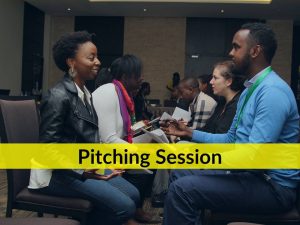
We announced the formation of the sub-regional forums- one in Eastern Africa, Western Africa and Southern Africa. These sub-regional forums enable members to collaborate on, and bring forth projects which they can show-case at the annual conference.
Fast forward to 2017, we have set up of the regional sub-forums. The initial plan is to start with an activity that builds the capacity of the organisations regionally (Eastern Africa, Western Africa and Southern Africa) to enable member organisations to speak with a common language, embedded in the African Union’s Agenda 2063 and the UN’s Sustainable Development Goals. With limited initial funding available, innovative ways to keep the sub regional events engaging yet accessible to member organisation are fast taking shape. The ICT4SI network also opens up opportunities for existing technical networks, leadership programmes, and Development and Private Partnership forums to link to our unique network, to make investment more effective. So far we have engaged a range of organisations in the sub-regions who are keen to benefit from the ICT4SI network and see great potential in greater collaborations across sector and country borders.
Our first event will be in Zambia in April 2017 and we are calling on organisations working in these sectors (health, education and advocacy) to email us if you want a chance to participate in the event.
We work hard to also challenge our members to think outside the box, to use people focused technology and to realise the potential of African ICT innovations.The ICT4SI network therefore welcomes ideas for collaborative activities in these themes and will keep you posted on the progress.
Till then, we leave you with the announcement for the Next ICT4SI conference in 2017
*ICT = Information and Communication Technologies and includes any technical devices, such as radio, mobile phones and software solutions.
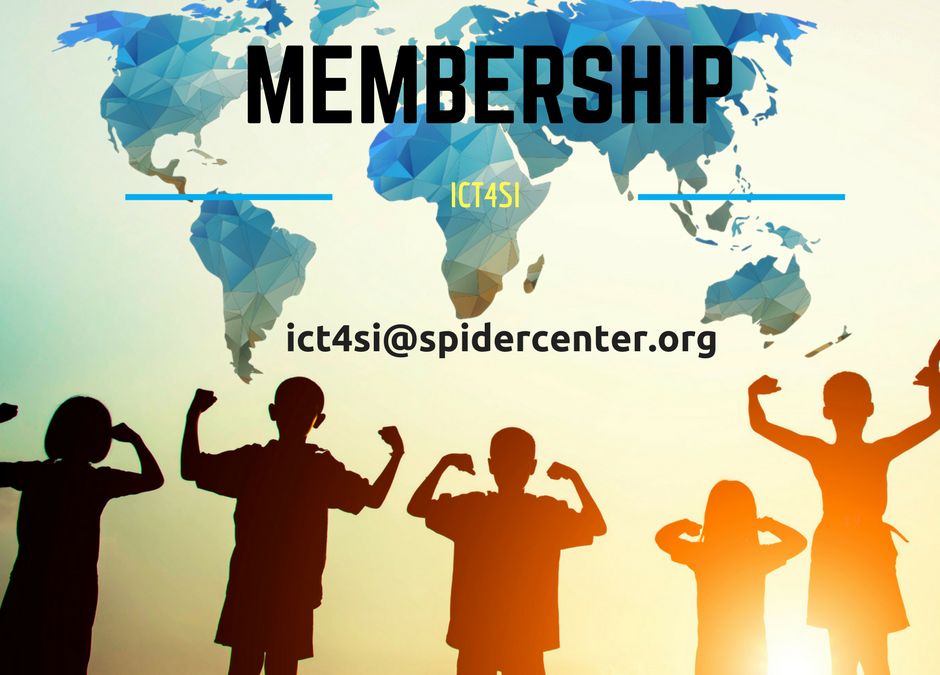
Social
Thank you all for the positive feedback to our new look and website! Your shares, likes and comments on social media are much appreciated. The best way your organisation/company/institution can register interest in joining our buzzing network is to send an email to ict4si@spidercenter.org

Blog, Media, Social
Those of you that missed the 2016 Conference in Nairobi, Kenya may not have known but the place for this year’s Conference is set. We are going to be in Abuja, Nigeria!!!! As Henry Ummunnakwe and Benjamin Akinmoyeje promise on the “big announcement’ video, we can expect some lush Nigerian food, good enough to not make you want to go back home again. The announcement in beautiful Nigerian pidgin is also available on our Facebook page and Twitter feed, so make sure you share widely and keep your eye on our website to get the early bird tickets in May.
Let us make this not only an event to remember, but a year to boast about!
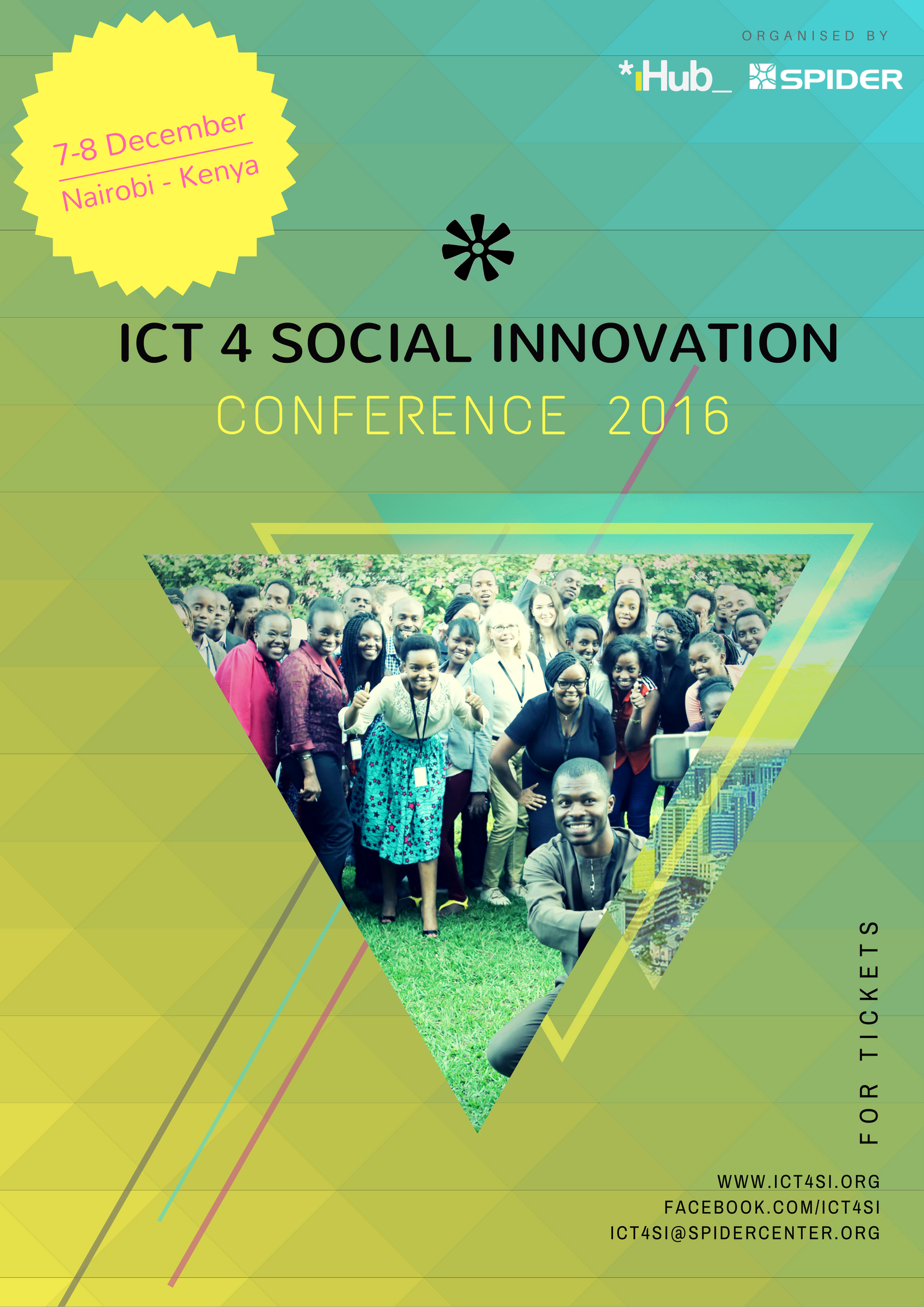
Uncategorized
iHub and SPIDER are proud to announce that the 2nd ICT 4 Social Innovation Conference will take place in Nairobi, Kenya and will host African Social Innovators that use ICT to improve health and education for our communities. This year one day will be dedicated to the ICT4SI Network members (7 December) and we are happy to welcome all those who want to be part of a Conference that breaks boundaries on 8 December. Tickets will be available soon and more information will follow. Follow us on Facebook.com/ict4si for latest information or check back on www.ict4si.org

Blog, Social

- Kiiya, CEO – Sema Tanzania writes about the way forward for the ICT4SI Network members.
Hi everyone, it was great to be part of the 1st ICT 4 Social Innovation Conference, with aim to boost practical social innovation to help solve communities pressing issues.
I was joined by colleagues from Rwanda, Kenya, Burundi, and as far as Nigeria in an ‘innovation’ assignment under group one at the ICT4SI Kigali. Our assignment was to find an innovative solution to one of Africa’s most pressing problem – inclusion of children with disabilities in children services. We gathered that most problems faced by these children find their roots in draconian African out-of-date traditions, practices and taboos. And more interesting, most of these taboos across African countries have one common denominator, stigma.
Because governments are run by individuals from same community backgrounds as people they lead, taboos are, albeit silently, taken into government policy thinking and policy implementing. Therefore, there is limited space (in formal and in informal avenues) to help children with disabilities access services in most African countries.
We also gathered that there are very minimal efforts to account for a number of children with disabilities in most Africa countries. This also includes limited data on types of disabilities children have. Our solutions were two folds, one that we begin with a serious data gathering initiatives to account for not only the number of children living with disabilities in project countries, but also help recognize most critical types of disabilities.
Once data is gathered, the findings will then lead us to Phase II of our solution, i.e. data sharing for advocacy and lobbying policy makers to be more and more inclusive of children with disabilities in their budget and plans for children services, on the one hand, and use evidence from data gathered to create awareness to communities on ending disability taboos, on the other. Hence, ‘‘End Disabilities Taboos in Africa, #EDITA’ was a slogan for our campaign/solution.
What I quickly learnt from the ICT4SI gathering in Kigali is that it is very possible to come up with practical solutions to our communities pressing problems, especially when environment is created for people with diverse background/experience to unobjectionably conceptualise their imagination into implementable answers.
And from our group one, I’ve made not only contacts that looks to become great partnerships, but also that through these partnerships we could work together to implement our baby, #EDITA.
For more information about Sema Tanzania visit www.sematanzania.org
Media

Blog, Social
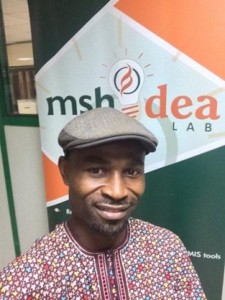
Benjamin Akinmoyeje, MSH IdeaLab, Nigeria
I experienced creativity, practicality and collaboration at the conference. We saw challenges and we talked about practical steps without criticism.
In my opinion, Social innovation is when a group of people decide to address the challenges in their community with available resources and expertise, in order to achieve an improvement for the common good of the community. A couple of examples of innovative ways to work with ICT and social change that have inspired me includes the way Ushahidi platform was used to monitor the 2015 Nigerian election and the Ebola Response. They were localised, the resources required to use them were easily available and the target communities could easily get support and own the process as well.
As an ICTD enthusiast who works in the public health space, I have found handy the ability to use open source software tools to collect data in order to help hard to reach communities make informed decisions. In this way, local community health administrators are able to manage limited resources while quickly identifying areas most in need. The ability to use open source tools like DHIS 2.0, Commcare, OpenDataKit, MedicMobile, OpenMRS , GoogleMap, to gather data (sometimes real-time or otherwise), equips the health care providers, health facility managers /administrators and communities to improve their overall well-being.
For instance, I participated in a program to counsel out of school youths to adopt safe sexual health practices. There was a need to collect data of how many people were reached and the level of adoption. For this purpose we used DHI 2.0 over mobile phones, which allowed local government officials get timely data in order to be able to adjust their intervention, despite their location. The volunteers were from the target community, the mobile phones were easily available and the resource required to support it was cheap airtime sold in that area. As the end result, the program was valued by the community and the youths became more responsible in their sexual health behaviour. The ownership of the program was evidence when the district chief donated about 800 dollars to see to the continuity of the program.
Another example is the “Stop. Don’t drop.” campaign. The organiser mobilises young professionals through social networks like Facebook and WhatsApp groups, to do community clean-up activities in the slums or to refurbish community school’s playgrounds with recycled waste materials like old tires, empty plastic bottles, etc. This campaign targets the awareness of waste disposal, its effect on climate change and the need to create a positive attitude towards preserving our environment. The ownership of the program was evidence when the district chief donated about 800 dollars to see to the continuity of the program.
My expectations for the ICT4 Social Innovation Conference were to discover genuine and practical social innovations in Africa and the new trends regarding health care issues. I wanted to interact with the social innovators, to understand their methods and approaches, in order to seek opportunities to develop new health care ICT projects.
During the two days of the conference I experienced creativity, practicality and collaboration. We saw challenges and we talked about practical steps without criticism. I was able to leverage other people’s knowledge and I brought my own professional experience. I met people and we were able to create a solution with our different skills and abilities. I’ve been trying to get attention for my projects for years and suddenly there were people interested in what I do.
We were able to do something together that we could pitch in only two days!! We were networking within Africa in two days. It’s huge! And we launched a network that will live on.
You can follow MSH IdeaLab Nigeria on FaceBook and Twitter.
https://twitter.com/mshngidealab https://www.facebook.com/mshnigeriaidealab/









